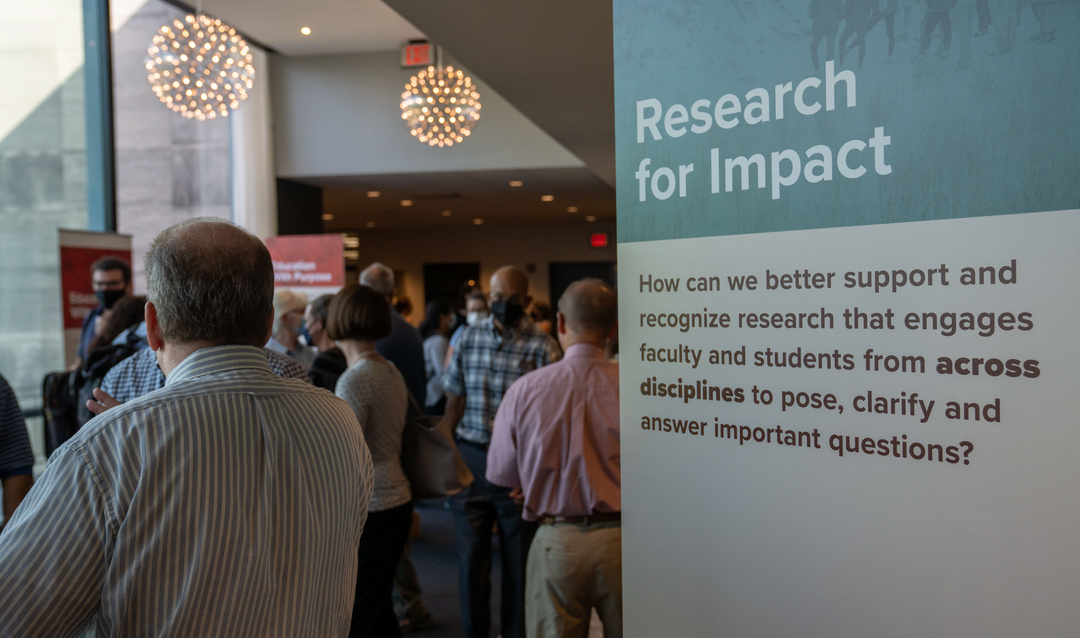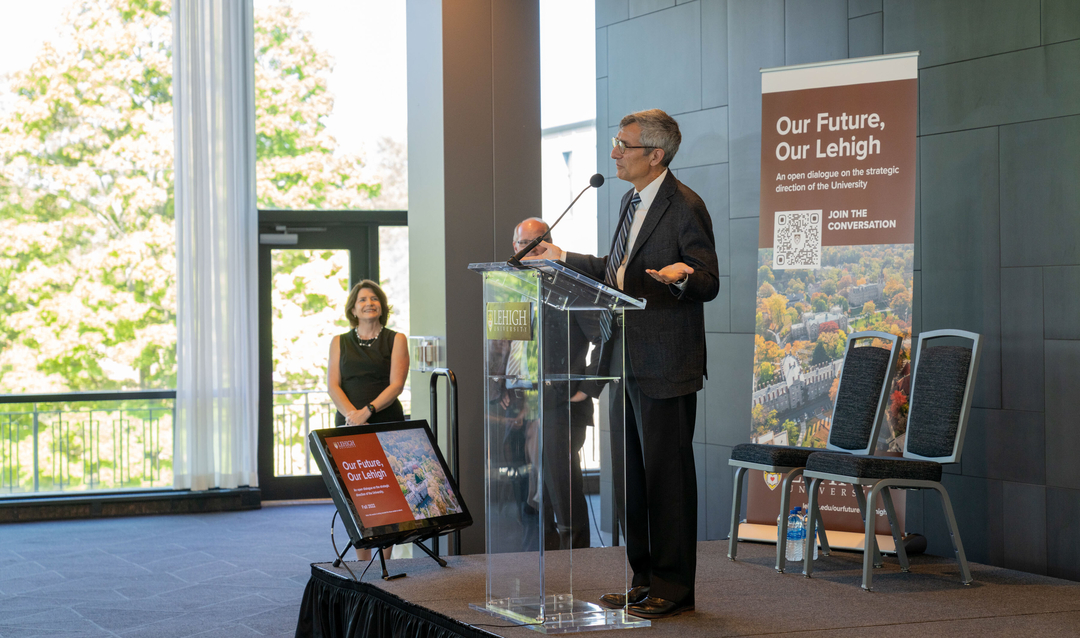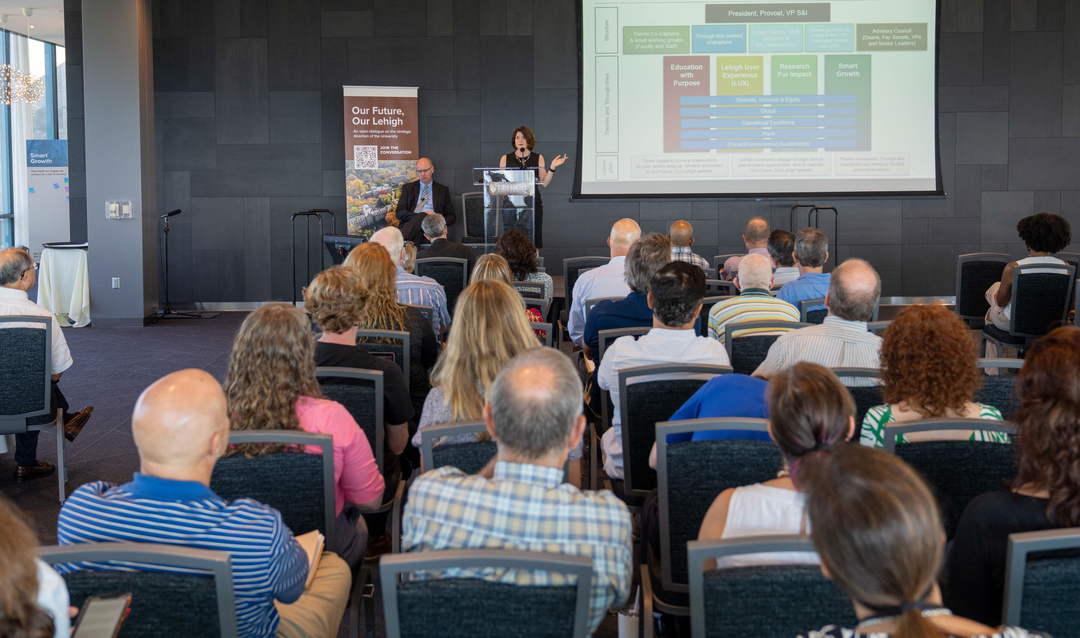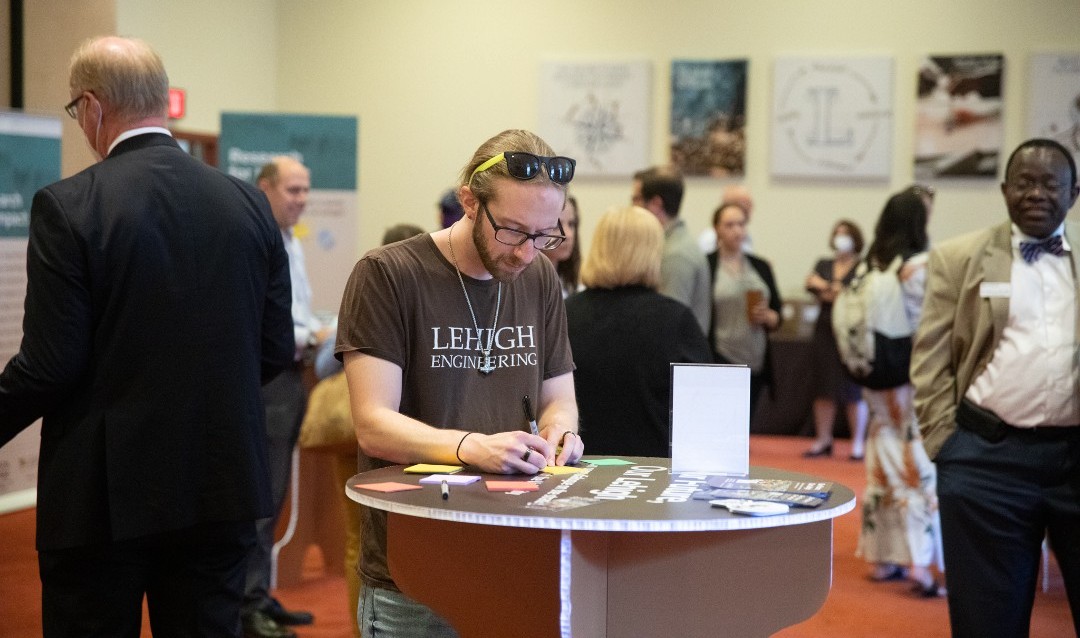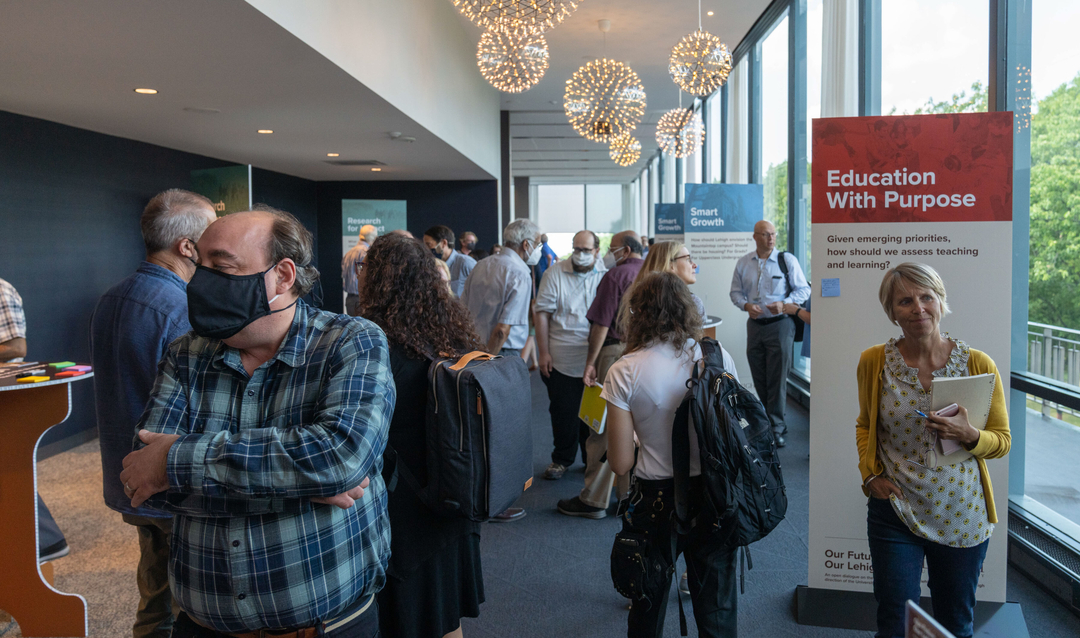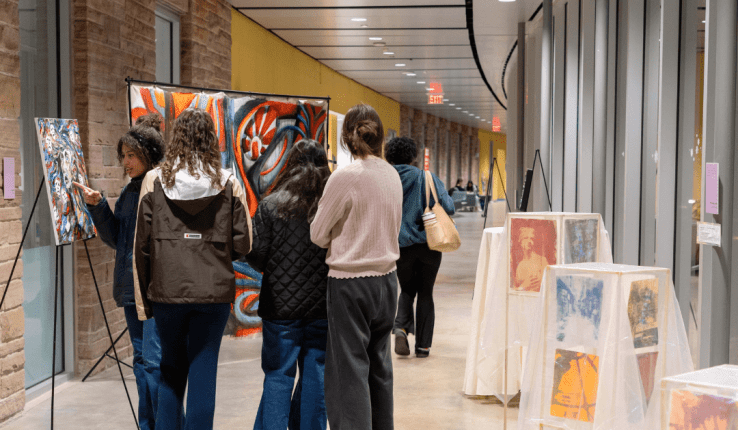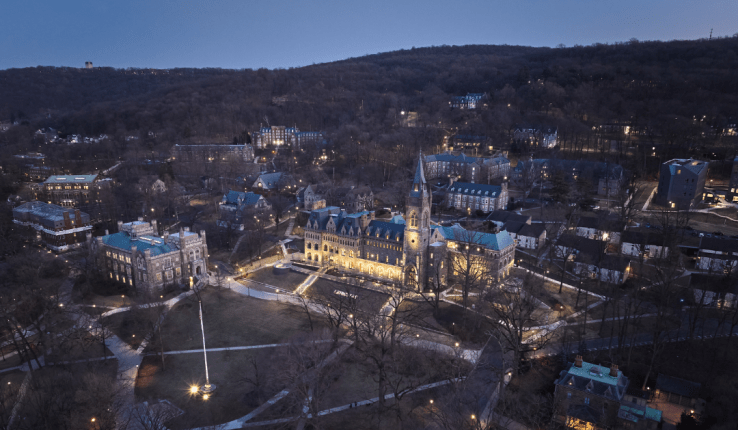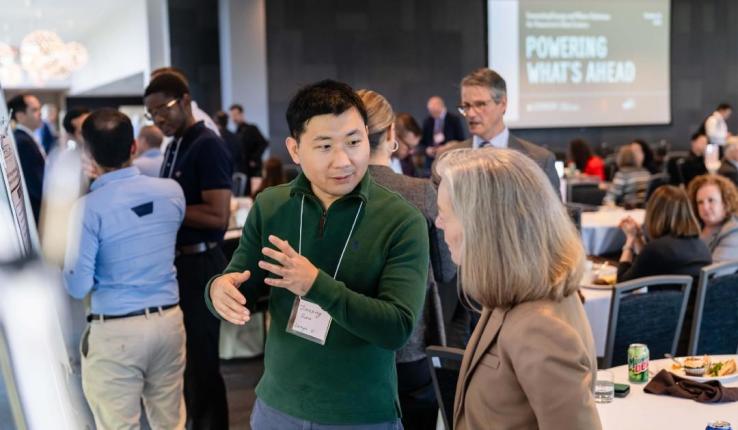At each forum over the three days, President Joseph J. Helble '82 welcomed attendees. “It's really good to have you all here for the beginning of an important, and I hope exciting and engaging, series of conversations that will help all of us chart the path for Lehigh’s immediate and longer-term future focused on strategic planning,” he said at the faculty forum.
As Lehigh began its work earlier this year, Helble said, he was often asked why Lehigh was embarking on a strategic planning process at this moment in Lehigh’s history. “First, it's a matter of time and timeliness,” he said, noting that Lehigh last went through the process more than a decade ago. “In that period of time, so much has changed in the world, so much has changed in the world of higher education and so much has certainly changed at Lehigh.
“And if we think about the world of higher education very specifically since our last strategic planning effort,” he said, “hybrid, online and distance learning … have exploded, both for intentional reasons, and then of course, because of a forced adaptation and adoption by everyone of new technology or new approaches to delivering content because of the pandemic.”
Additionally, he said, “There's been tremendous questioning, concern and criticism of higher education around outcomes for our students. “Does the education they get matter? Does it provide them with the tools, learning, awareness and skills that they need to go out and lead impactful lives of meaning and difference–make a difference in their communities, make a difference in their employers and be gainfully employed?”
The great news, Helble said, is that Lehigh is “extraordinarily well positioned,” both financially and in terms of student outcomes. In the past year, student applications increased, the number of faculty increased, and research funding grew.
“The challenge for us is to identify the true points of excellence here at Lehigh and build on them, to invest in these areas that truly make us distinctive, to do more of what we do extraordinarily well and to identify opportunities to do the new, to focus, to make choices, to have investments that follow and stick with it,” he said.
Rather than have a small group deciding Lehigh’s future, Helble said, the university can bring together the campus community to work hard in identifying the broadest and most creative ideas. “We are doing it from a position of strength,” he said, “but it is essential that we do it now."
The Strategic Planning Process
At the forums, Provost Nathan Urban and Vice President of Strategic Planning Chris Cook, who are leading the strategic planning effort, alternately explained the scope and timeline of the process, the structure for campus engagement, the themes guiding discussion and the ways that faculty, staff and students can join the conversation about Lehigh’s future.
They said the process also will include identifying hurdles to accomplishing new initiatives. The campus is invited to submit operational challenges that are in the way of the strategic discussions by sending an email to inHurdle@lehigh.edu.


